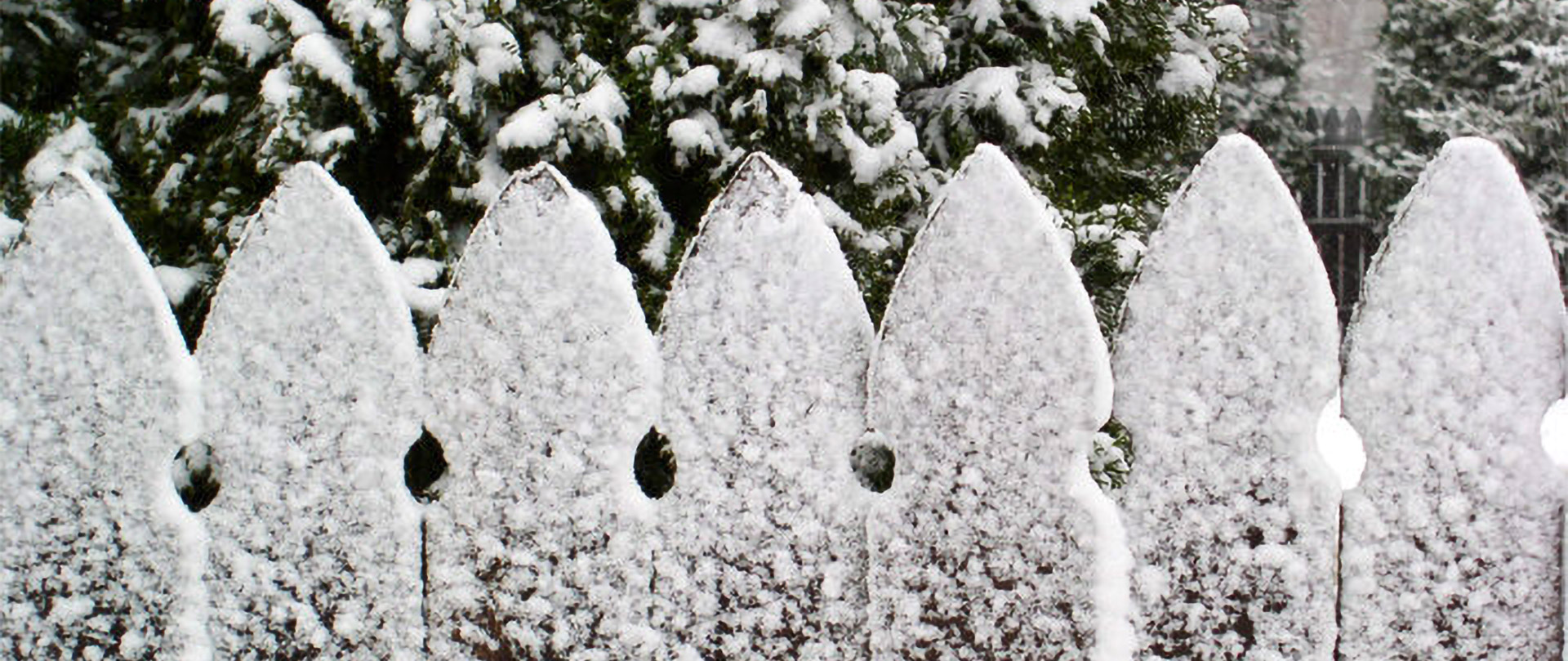Winter, particularly in New England, can be particularly harsh on our outdoor spaces, especially lawns and fences, which often bear the brunt of winter’s fury. While we may forget about our lawns and fences during the winter, they require specific care to ensure their longevity. In this blog post, we’ll dive into the essential tips and strategies for maintaining your lawn and fence during winter. To help, the following offers some important do’s and don’ts about winter lawn care and fence maintenance. Ultimately, doing a little work now offers some protection against the harsh elements to keep your landscape in good condition for spring and summer.
Winter Lawn Care “To-Do” List
First and foremost, preparing your lawn and garden for winter helps nurture the ground for spring growth. Additionally, focusing on winter lawn care offers an additional benefit of helping to keep any fences in your property in good condition as well. For some simple steps to prepare your landscape, then the following three key winter lawn care tasks will help set the foundation of a strong spring growing season.
- Rake and remove leaves, twigs and other yard debris. Accumulated debris in your yard can cause thinning or dead sections of grass due to inadequate air circulation or sunlight. Additionally, failure to remove piles of leaves can also create conditions for mold and other disease, as well as fence rot. Finally, undesirable pests may nest in the debris, which might lead lawn and/or fence damage.
- Mow mindfully. Long grass, like the buildup of leaves and twigs, can also appeal to bugs and rodents when the weather turns cold. Cutting the grass too short can compromise lawn health, it is generally recommended to maintain at least an inch or so of grass during the final mow. As with leaf accumulation, removing thick grasses can also help protect fences against deterioration from moisture or damage by pests.
- Repair and care for grass and fencing. During the fall, then take the time to walk around your property and just look at your fence and lawn. A simple look after the leaves have fallen may reveal some lawn or fence damage. Additionally, during the fall, lawn care experts recommend aerating your lawn and applying a fall fertilizer application, along with a few other lawn care strategies to help maintain a healthy landscape throughout the winter. Similarly, completing any necessary fence repairs, cleaning fences to remove any mold or mildew and doing any recommended weatherproofing, if needed, help protect your fences during harsh winter conditions.
3 Winter Lawn and Fence Care Errors to Avoid
Understandably, most homeowners are not eager or motivated to complete fall and winter landscape or fence projects. However, avoiding winter lawn care errors may actually save you both time and money in the long run!
- Failing to prune and trim trees, shrubs and bushes. Skipping the final pruning may lead to health issues for your bushes, shrubs, trees and other plants in your yard. Additionally, failure to prune or trim around fences may lead to unnecessary damage to pool fences, privacy fences and other types of fences on your property. Finally, fallen branches can compromise the structure of a fence or result in weakened spots in the lawn due to their heavy weight, so trimming any weak branches in the fall helps protect your property.
- Neglecting drainage or moisture control. Both lawns and fences require careful moisture management. Ineffective drainage from leaf accumulation or other complications can lead to pooling water which can damage the roots of your grass, especially when freezing temperatures are involved. Excess water exposure can also result in fence decay or rust.
- Improper snow removal. After taking care of the other necessary steps to winterize lawns, gardens and other outdoor areas, proper snow removal is still required. For example, using sharp tools and excessive force to remove snow around your bushes or fences can result in damage to fences and lawns, such as:
- Painted or wooden surfaces can be scratched or dented from careless treatment.
- Aggressive shoveling can damage grass blades and disrupt soil, which create dead patches in the lawn.
- More forceful snow removal, like pushing heavy snow into a fence, can result in structural damage, such as fence warping or broken panels.
- The use of heavy machinery or frequent walking on the lawn during snow clearing can smother grass and impact future growth.
In addition to your proactive winter lawn care and fencing maintenance, collaborating with an award-winning fence company, like Orange Fence, helps ensure that you have the best fence for your property and climate. From serving communities throughout Connecticut for more than 95 years, the Orange Fence team understands how unpredictable these colder months can be and the damage that severe weather can do. Consequently, our expert fencing providers can also provide personalized recommendations on fence repair or other fencing services to help you care for your fence, gates, pergolas and other installations throughout every season. Contact Orange Fence today for a free service estimate on your upcoming project!

